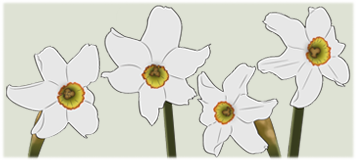I love a good gardening quote, and Henry Mitchell is eminently quotable.
It is a great joy the day we discover that we can learn things without having to make the mistake ourselves. (p. 81)
What makes a good garden quote? Well, I could take the easy way out and say I know it when I see it. In the end of course, that’s what it boils down to. But if I had to narrow it down, I’d say a good quote has three characteristics:
- Conciseness. I confess to pushing the limits with this one. Some bon mots just make more sense with a bit of context.
There may be a fine line between improving garden flowers and making them ugly. (p. 67)
The secret of success in tidying up the garden is, simply, not to start new projects. (p. 34)
The trouble with master plans in gardens, then, is simply that they do not take into account masterful plants. Nor addled masters. (p. 236)
Sleet, incidentally, is the worst five-letter four-letter word I know. (p. 120)
- A nugget of truth or wisdom.
Fortunately, by the thirtieth or fortieth or fiftieth year or thereabouts, the gardener strikes that balance by which he has the best of all seasons. By the time one is eighty, it is said, there is no longer a tug of war in the garden with the May flowers hauling like mad against the claims of the other months. All is at last in balance and all is serene. The gardener is usually dead, of course. (p. 25)
It should be said, though without any intention of adding to the world’s already adequate store of guilt, that the average gardener is surprisingly lazy and, not to split hairs about it, pig-headed. (p. 45)
Gardening is not some sort of game by which one proves his superiority over others, nor is it a marketplace for the display of elegant things that others cannot afford. It is, on the contrary, a growing work of creation, endless in its changing elements. It is not a monument or an achievement, but a sort of traveling, a kind of pilgrimage you might say, often a bit grubby and sweaty though true pilgrims do not mind that. A garden is not a picture, but a language, which is of course the major art of life. (pp. 71-72)
- A surprise or unexpected twist. I think Mark Twain explains it best: “Wit is the sudden marriage of ideas which before their union were not perceived to have any relation.”
. . . the full double [peonies], very like dahlias that have gone to heaven and been transformed. (p. 20)
Now, nobody imagines his modest little patch is going to be the greatest thing since copper bracelets, no. But it will be personal, and it will be fascinating, because there is no such thing as dullness when the gardener is going full steam ahead and damn the torpedoes, as it were. (p. 80)
The biggest crocuses are also excellent for gardeners who fear they are themselves getting almost too refined to breathe. (p. 86)
But along the way we really do learn that marigolds gain enormously in impact when used as sparingly as ultimatums. (p.97)
But a garden is somewhat exalted above ordinary notions of correctness. A garden is more than a matter of the right fish fork, as it were. (p.136)

I have been re-reading The Essential Earthman
by Henry Mitchell for the Garden Blogger’s Book Club. I found it extremely difficult to write this post; there was just so much to say about Henry Mitchell that it was hard to know where to begin. I finally had to limit myself to one topic per post, and I can see already that I will not be able to get to the other posts about him that I had in mind. But no matter. That just means I have a good reason to re-read this book again. As if I need an excuse. You should know that there are several editions of this book, as detailed here. I have the Houghton Mifflin expanded edition, and the page numbers after every quote reference that edition.
Compared to gardeners, I think it is generally agreed that others understand very little about anything of consequence. (p. 41)




My all-time Henry Mitchell quote is still:
Most of my daffodils have severe defects, by show standards, but then they make a brave show all the same. I have several that are to my eye distinctly ugly, but I like them too. One is a bicolor trumpet, white perianth with a really gross megaphone sticking out in intense neon-lemon, frilled to beat the band, like a whore on Easter.
🙂
.-= Bob´s last blog ..Kabak Çiçe?i Gibi… Squash Flowers =-.
Don, Elizabeth Lawrence is, in fact under consideration.
Mitchell is probably our best garden writer, but if I could make a suggestion for your club: consider Elizabeth Lawrence, perhaps with her book A Tale Of Two Gardens. She had that rare skill of endowing her writing with a sense of place, something which must be very difficult, as it is so rare in garden writing.
I am planning to post the December selection at the end of the week, right after Thanksgiving, and also the January selection at the same time, in case anyone wants to put it on their Christmas wish list. It is a fairly new book so I don’t know that a lot of people have it.
In both cases, I’ve also come up with a way for people to participate who don’t have time to read the book or have access to it.
I’ve counted up 4 official H.M. posts and if I go back through the notes I’m keeping, I think there are a few earlier ones. By the way, I’m interested in selecting another garden essayist for February, if you have any ideas…
Actually, Kathy, that was more in the nature of a “Nyah, nyah – you didn’t get my favorite” or “Thank heavens you didn’t use my favorite.” Mine’s in draft and I was afraid you’d say the same things.
Monday – I promise – Monday!!
Annie
Carol, thank you for choosing Henry Mitchell for the first book. I was hoping we’d have seen more entries by now. When are you going to announce next month’s selection?
Oh, Annie, just because I didn’t post “your” favorite quote doesn’t mean it isn’t one of “my” favorites. It is as Mr. Klinkenborg said, it’s hard to stop quoting Henry. I had to make myself stop, and I tried to use quotes that illustrated my points without resorting to quoting whole pages. Sometimes I am tempted to make a pastiche of Henry Mitchell quotes, especially since if you pull quotes from different essays, you can show that he contradicts himself–and he’s right in both quotes!
It’s fascinating to see what quotes or chapters different people find are the ones that “speak” to them. You didn’t even get my favorite, Kathy!
The saddest quote above?
“All is at last in balance and all is serene. The gardener is usually dead, of course.”
Henry was not quite seventy when he died on November 12, 1993 – and seventy is not old enough to be called a ripe old age – it was too young.
I found this remark from Verlyn Kinkenborg in the NYTimes, in talking about the On Gardening book,
“It’s always tempting to quote Mitchell, but once you start it’s hard to know where to stop.”
Annie at the Transplantable Rose
Wonderful. I love how you pulled out these quotes. I read the whole book, but seeing these quotes pulled out “to stand on their own” seems to give them more meaning. It is like how one rose cut from a rose garden and set on display in a vase seems to take on a regalness all its own, not necessarily noticed when it was all mixed in with the other roses.